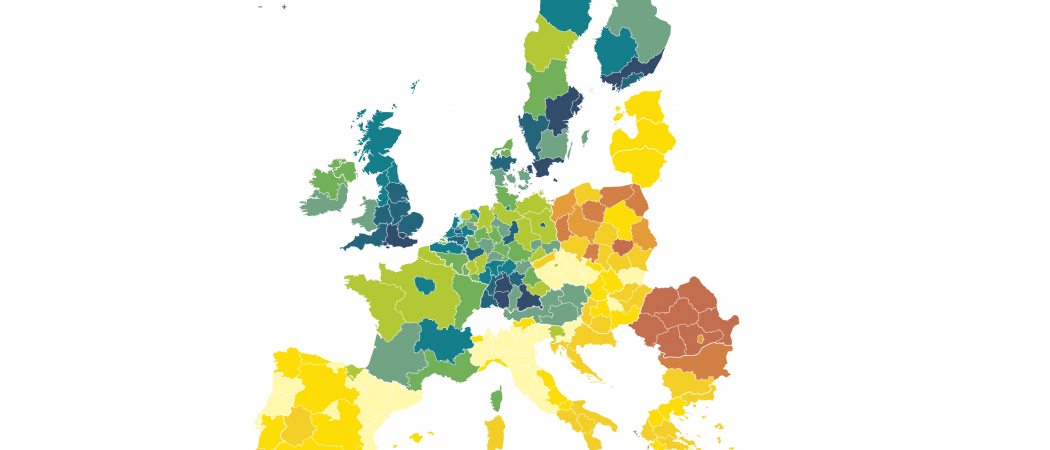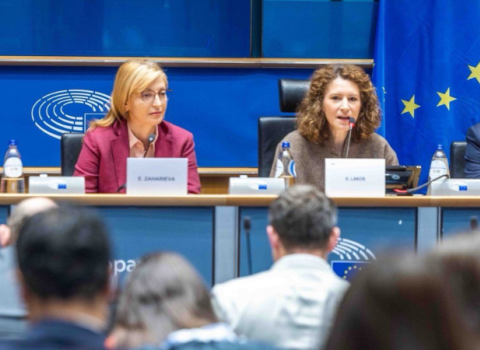Big push is needed in Horizon Europe to spread excellence and help research in EU13 member states catch up with the west

According to the European Commission, research and innovation performance is not spread evenly across Europe's regions. Image: Regional Innovation Scoreboard
Rectors and heads of academies in central and south eastern Europe have called for new and effective measures in the next R&D programme, Horizon Europe, to make fast progress in bridging the west to east performance gap.
In a joint statement drafted in Berlin, academic leaders urge policy makers in Brussels to spend more money on creating a level playing field for European research. Existing instruments make “a welcome contribution” towards closing the gap between new and old member states, “but they have had a limited impact,” the statement says.
But statement says, any policy aimed at bridging this gap should not be made at the expense of excellence, which should remain the guiding criterion in European science.
The EU13 research leaders want new funding instruments to promote “brain gain” and “brain circulation”, helping their institutions to retain staff, while giving them opportunities to specialise and consolidate their skills in other countries.
Germany’s research institutes are working on many collaborative projects with partners from EU13 member states and argue that EU research funding should be targeted to spread excellence across the continent, not just in richer countries. “The EU’s integration effect should become visible particularly in the fact that we work together to strengthen the quality and excellence of research in the new member states,” said Matthias Kleiner, president of the Leibniz Association, which organised the meeting in Berlin jointly with the German National Academy of Sciences Leopoldina.
“There is still plenty of need for discussion in Europe about education, research and innovation and 15 years on from the EU-enlargement, considerable disparities between east and west, north and south still remain. We must reduce these disparities,” said Jörg Hacker, president of the German Academy.
At the same time, member states should acknowledge they have a responsibility to improve their national research systems, and allocate more money to science and innovation, the signatories agreed. Member states could work together on enhancing research management capacities and learn how to write successful funding applications, but they should also commit to paying researchers involved in EU-funded projects at levels comparable to north west Europe.
The statement is the first attempt from EU13 member states to speak with one voice on research and innovation performance in Europe. “EU13 colleagues are well aware of their responsibility for the advancement of the EU as a whole. They have transmitted an undoubted message of cooperation," Hacker said.
"In times in which autonomy and freedom of science are questioned in some places, it is even more important that policy-making and science work together in a constructive dialogue for the further development of Europe,” Kleiner said.





 A unique international forum for public research organisations and companies to connect their external engagement with strategic interests around their R&D system.
A unique international forum for public research organisations and companies to connect their external engagement with strategic interests around their R&D system.